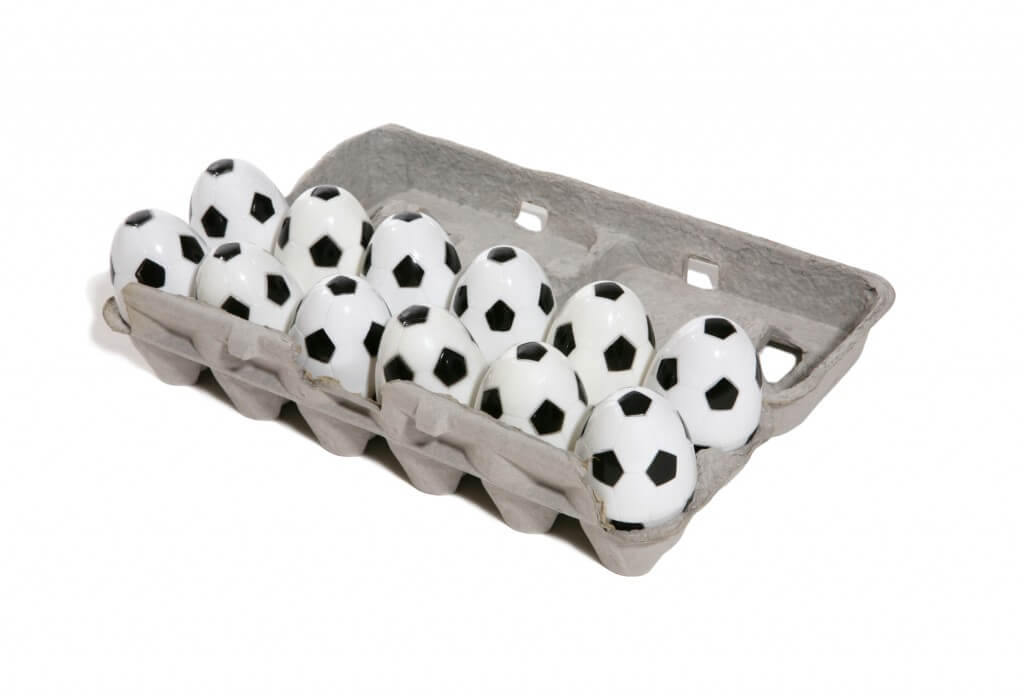Here is part 1 of a series of blogs about how sports, and nutrition, can benefit children, written by Jason St. Clair Newman, an expert in physical preparation training at the European Football Academy. Jason believes that sports can teach children good habits for life; a sense of fair play; discipline; health; and ambition.
Start the Day Well
Breakfast, as you are probably aware, is the key, if not the most important, meal of your child’s day.
During sleep, a child’s body slowly burns energy and grows, helping to repair and build new tissue, and lay new bone, amongst other processes.
When they wake, they need new fuel to continue this process and help them start the day well. One of the biggest problems teachers experience is the sugar ‘high’ from unhealthy snacks, and if your child eats unhealthy breakfast cereals, this ‘high’ can coincide with their drop-off at school. Their focus disappears as their blood sugar drops, and their first critical moments in school are ruined with poor performance.
Begin the day right with a healthy breakfast, and ensure you, or the school, provide children with healthy snacks and lunches during the school day. This ensures that your child’s focus and energy levels are fed and remain steady throughout the day.
Fast, Healthy Breakfasts
In-the-bowl porridge
- Soak ¼ cup of oats/porridge overnight in water or milk.
- Add 5-6 chopped nuts, walnuts are particularly good (skip this step if your child has nut allergies).
- Pour in a little hot water or milk to warm it up, then leave to soak for 3 minutes.
- Add any type of fruit to this, generally thin-skinned fruit such as berries are best, but bananas are a crowd-pleaser. Sultanas or dates also work well.
- Add a sprinkle of cinnamon (it has been suggested this spice helps balance to blood-sugar levels) and a splash of maple syrup will win over the toughest kids.
- Optional extras: pumpkin seeds, sunflower seeds, ¼ cup of coconut milk. Seeds should ideally be added to the mix to soak overnight. This helps with digestion.
Toast is not a healthy breakfast
When kids are asked at football training what they had for breakfast, the overwhelming majority of them reply: ‘a piece of toast’, ‘nothing’, or ‘some cereal’. Toast and cereal are not great breakfasts, but at least they are something. ‘Nothing’ is simply not good enough. We try to help children understand how important a good breakfast is, both for their performance on the pitch, but in life as well.
For kids who play sport and are very active it is important they eat a variety of healthy foods. Starting the day with a good breakfast sets them up for success in many ways. A piece of toast with jam is pretty nutritionally poor, but a piece of multi-seeded toast with some avocado, tomatoes and a slice of cheese, is a lot better. It will give them longer, more sustained energy. Even nut butter is better, as long as they don’t have nut allergies.
When choosing cereals, it is important to take note of the sugar content. You can tell by simply looking on the back of the packet and note how much sugar there is per 100g. This can help you make better decisions. As a guide, 5g of sugar per 100g of cereal is okay, and this should be your benchmark. Any more, and you should put it back on the shelf. Where that sugar is coming from is also important, if fruits are included in the mix, then the sugar quite possibly comes from that, rather than from added, refined sugar, which is the worst kind. Refined sugar is a big no-no and should set your alarm bells ringing.
Another tip is take a look at the ingredients, and note which foods come first in the list. Foods that have the greatest quantity appear first. Comparing that with the sugar content will help also give you a general overview of where that sugar is coming from.
Fast, Healthy Breakfasts
Two-egg omelette
- Get 2 free-range, or organic eggs
- 5 cherry tomatoes
- A small handful of washed spinach
- Olive oil, salt, and pepper.
- Optional extra: a slice of multi-seed organic bread from the bakery, and teaspoon of fresh avocado.
Put a small omelette pan on a low heat with a splash of olive oil. Cut the tomatoes and add to the pan (be careful not to get the oil too hot, if it is smoking, start again). Allow the tomatoes to soften for a minute, then add the spinach. Finally crack your eggs over the top, quickly stir everything around, and let it cook. Check the sides of the omelette to make sure it doesn’t catch.
Toast the bread (if you are using it), and spread over a teaspoon of the fresh avocado.
Assemble the omelette and toast on a plate, and serve.
Change your approach to breakfast
Rather than rushing to get everyone out the door on time, and making do with whatever is quick in the morning, try to plan for breakfast the night before. Getting some protein into breakfasts provides a great start to the day. Eggs, for example, are an excellent source of protein, are quick to cook, and, and can be presented in many different, tasty ways. You can create different tastes through combining different food options. Adding some leftover cooked meat from your evening meal (stored overnight in the fridge) is a great start to the day. Cooked ham, or a few slices of chicken, can make breakfast a nutritious, filling, and easy meal. And when combined with something like a toasted slice of rustic bread, some tomatoes, or wilted spinach, it will provide a nice, slow release of energy in to your child’s body, and keep their concentration levels up where you want them. We highly recommend these types of breakfast during the school week.
Breaking children’s unhealthy eating habits is hard, but your mantra should be ‘variety is key’. A varied diet is one of the best ways of avoiding food boredom, and getting nutrients from a variety of different whole-food sources helps with your child’s overall development, and exposes their developing taste buds to different, delicious, and healthy foods.
Fruit Juice We don’t recommend this as a regular fluid for children as the sugar content is very high. You really can’t beat water.
Water is the winner when it comes to drinks for children, and a glass of filtered water with breakfast is much better than many other breakfast-style drinks. Giving children a full water bottle for school to sip on throughout the day is a perfect way for them to stay hydrated, and is also useful for their sports and activities after school.
Further reading
Books we recommend for giving you some great inspiration for healthy, simple, tasty breakfasts (and other meals) are: The Medicinal Chef series by Dale Pinnock, (Eat Your Way to Better Health, and, Healthy Every Day) and The 100 Foods You Should Be Eating by Glen Matten. Both are available on Amazon, and through other bookstores.
For further reading about the importance of breakfast for child performance, read this study by Adolphus, K., Lawton, C. L., & Dye, L. (2013): The effects of breakfast on behaviour and academic performance in children and adolescents.
US National Library of Medicine
This article has been written by Jason St. Clair Newman. BPhEd, DipSpSt. Physical Preparation Trainer, European Football Academy, London. Photo credits: Peter Belch;Tiago Faifa; Andrew Pons




